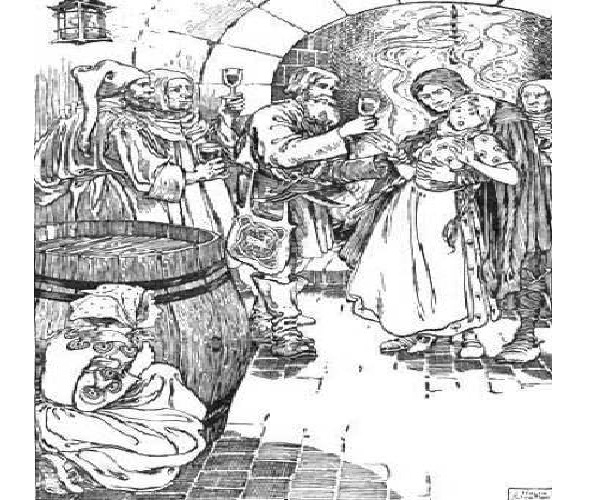
This cartoon by Wiley Miller is both comical and gender-role destroying. As you can see, the male dressed in green assumes that Rapunzel wants to be rescued, and she assures him that she is fine with her TV, and can handle things on her own.
I already like this a lot, although I do love the Disney film, Tangled, where she is rescued. And the Grmms version honestly ins't too bad either, in their own grim fashion. It addresses the fact that it fairy tales the girl most often can't do things on her own and she has to be saved by some guy. Who, nine times out of ten, just happened to stumble upon them. I won't complain too much though, because I love damsel in distress scenes, which is so anti-feminist I know.
So, in Rapunzel the original fairy tale, the prince sings the mother's song (Rapunzel, let down your hair) so that she will let down her hair, because he was entranced by her singing. In this cartoon, Rapunzel does not seem to be singing, nor does she have long blond hair. She has vibrant blue hair, that looks rather short. In the fairy tale, once she discovers that it is a man that has climbed up she is frightened. In this fairy tale, she doesn't seem scared. rather, she sounds annoyed that he tried to stereotype her into being one of those girls that needs saving.
I honestly think it's always refreshing breaking away from a stereotype. Poor guy must have been disappointed when he figured out that she didn't need saving though. I mean, he even came prepared with a sword. . .


